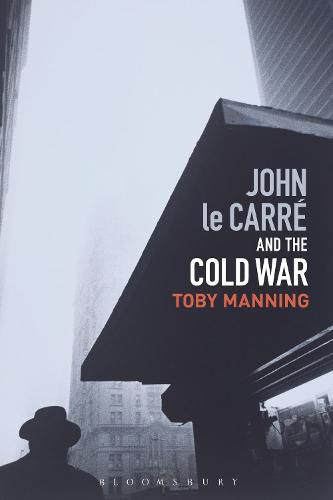Readings Newsletter
Become a Readings Member to make your shopping experience even easier.
Sign in or sign up for free!
You’re not far away from qualifying for FREE standard shipping within Australia
You’ve qualified for FREE standard shipping within Australia
The cart is loading…






John le Carre and the Cold War explores the historical contexts and political implications of le Carre’s major Cold-War novels. The first in-depth study of le Carre this century, this book analyses his work in light of key topics in 20th-century history, including containment of Communism, decolonization, the Berlin Wall, the Cuban missile crisis, the Cambridge spy-ring, the Vietnam War, the 70s oil crisis and Thatcherism.
Examining The Spy Who Came in from the Cold (1963), Tinker Tailor Soldier Spy (1974), Smiley’s People (1979) and other novels, this book offers an illuminating picture of Cold-War Britain, while situating le Carre’s work alongside that of George Orwell, Graham Greene and Ian Fleming. Providing a valuable contribution to contemporary understandings of both British spy fiction and post-war fiction, Toby Manning challenges the critical consensus to reveal a considerably less radical writer than is conventionally presented.
$9.00 standard shipping within Australia
FREE standard shipping within Australia for orders over $100.00
Express & International shipping calculated at checkout
John le Carre and the Cold War explores the historical contexts and political implications of le Carre’s major Cold-War novels. The first in-depth study of le Carre this century, this book analyses his work in light of key topics in 20th-century history, including containment of Communism, decolonization, the Berlin Wall, the Cuban missile crisis, the Cambridge spy-ring, the Vietnam War, the 70s oil crisis and Thatcherism.
Examining The Spy Who Came in from the Cold (1963), Tinker Tailor Soldier Spy (1974), Smiley’s People (1979) and other novels, this book offers an illuminating picture of Cold-War Britain, while situating le Carre’s work alongside that of George Orwell, Graham Greene and Ian Fleming. Providing a valuable contribution to contemporary understandings of both British spy fiction and post-war fiction, Toby Manning challenges the critical consensus to reveal a considerably less radical writer than is conventionally presented.